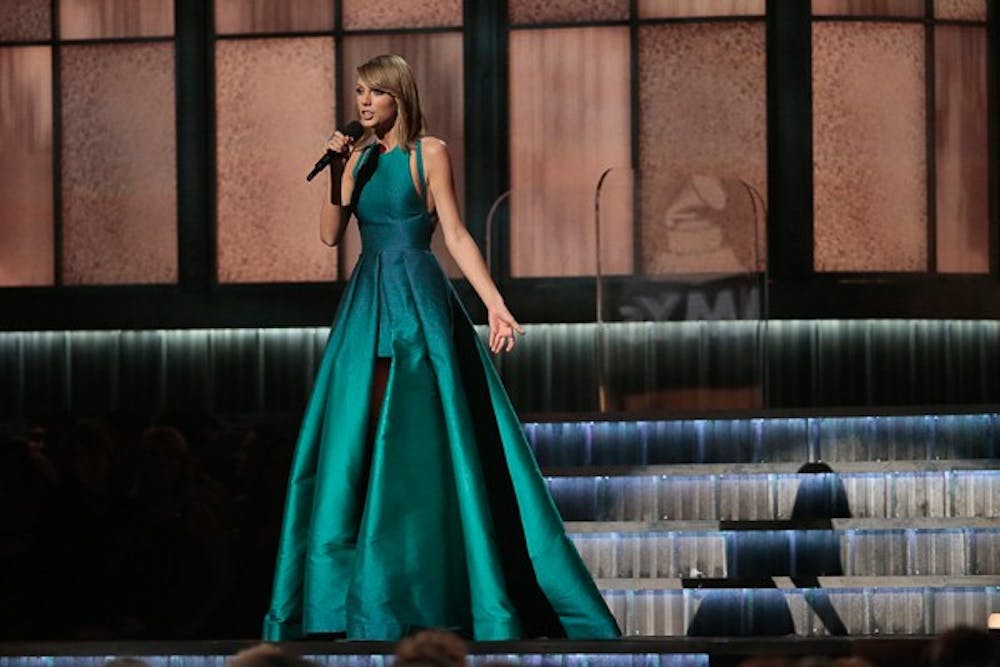
 Taylor Swift on stage at the 57th Annual Grammy Awards at Staples Center in Los Angeles on Sunday, Feb. 8, 2015. (Robert Gauthier/Los Angeles Times/TNS)
Taylor Swift on stage at the 57th Annual Grammy Awards at Staples Center in Los Angeles on Sunday, Feb. 8, 2015. (Robert Gauthier/Los Angeles Times/TNS)The latest drama involving Republicans and the FCC concerns that one buzzword you’ve probably seen thrown around in frustration on Reddit: net neutrality.
And the predicament is surprisingly similar to Taylor Swift’s drama with Spotify.
FCC Chairman Tom Wheeler wants to ban Internet providers from blocking, slowing down or speeding up websites for payment. Essentially, the FCC wants all websites to be treated equally, hence the term net neutrality. Sounds a lot like preschool logic, but Internet providers disagree.
Companies like Comcast and Verizon are currently able to control user access to the Internet and website accessibility on the Internet. Since it hasn’t yet become common practice, many Internet users are still unaware this is happening.
It’s textbook blackmail, both toward users and websites. In fact, back in 2014, Comcast pretty much extorted payment from Netflix. Netflix customers who used Comcast as their Internet provider were seeing a steady decrease in video quality and loading speed while on the Netflix website. Once Netflix agreed to pay Comcast, the video quality shot back up the next month.
Coincidence? The FCC thinks not.
What’s the worst-case scenario if net neutrality is shot down? Imagine if every time you typed an Internet address in the search bar, you had to watch a 30 second advertisement. Or every time you used a search engine other than the sponsored one on your mandated homepage, the search took four times longer to produce results.
Ideally, the FCC wants the Internet to be treated like a utility, similar to water and electricity. Obama, the Democrats and tech companies are all for it, per the usual stance against big business and pro-government regulation, so of course the Republicans are not about it.
The GOP claims that the FCC, a federal agency, is exerting too much power in making Internet a public good. Republicans would rather leave Internet providers alone with their extra cash in order to promote investment in innovation. How sweet.
But hey, this isn’t the first time someone has decided they would prefer to make access to content more difficult in order to make more money.
Does the Taylor Swift and Spotify spat ring a bell?
Taylor Swift made headlines in 2014 with the announcement that she was removing her music from the popular streaming service, Spotify, saying that music is art and art deserves to be paid for.
Sounds a lot like the Internet providers’ argument that Internet is a service and deserves to be paid for because consumers can still choose where to purchase Internet access.
Music and Internet are a bit different in terms of public use, but it’s clear that both industries are rapidly changing and the FCC’s input will be pivotal.
Taylor Swift may not be coming back to Spotify, but we can still hope for a net neutral future.
Tell the reporter your net neutrality horror story at enichol3@asu.edu or follow @LizNichols4 on Twitter.
Like The State Press on Facebook and follow @statepress on Twitter.




